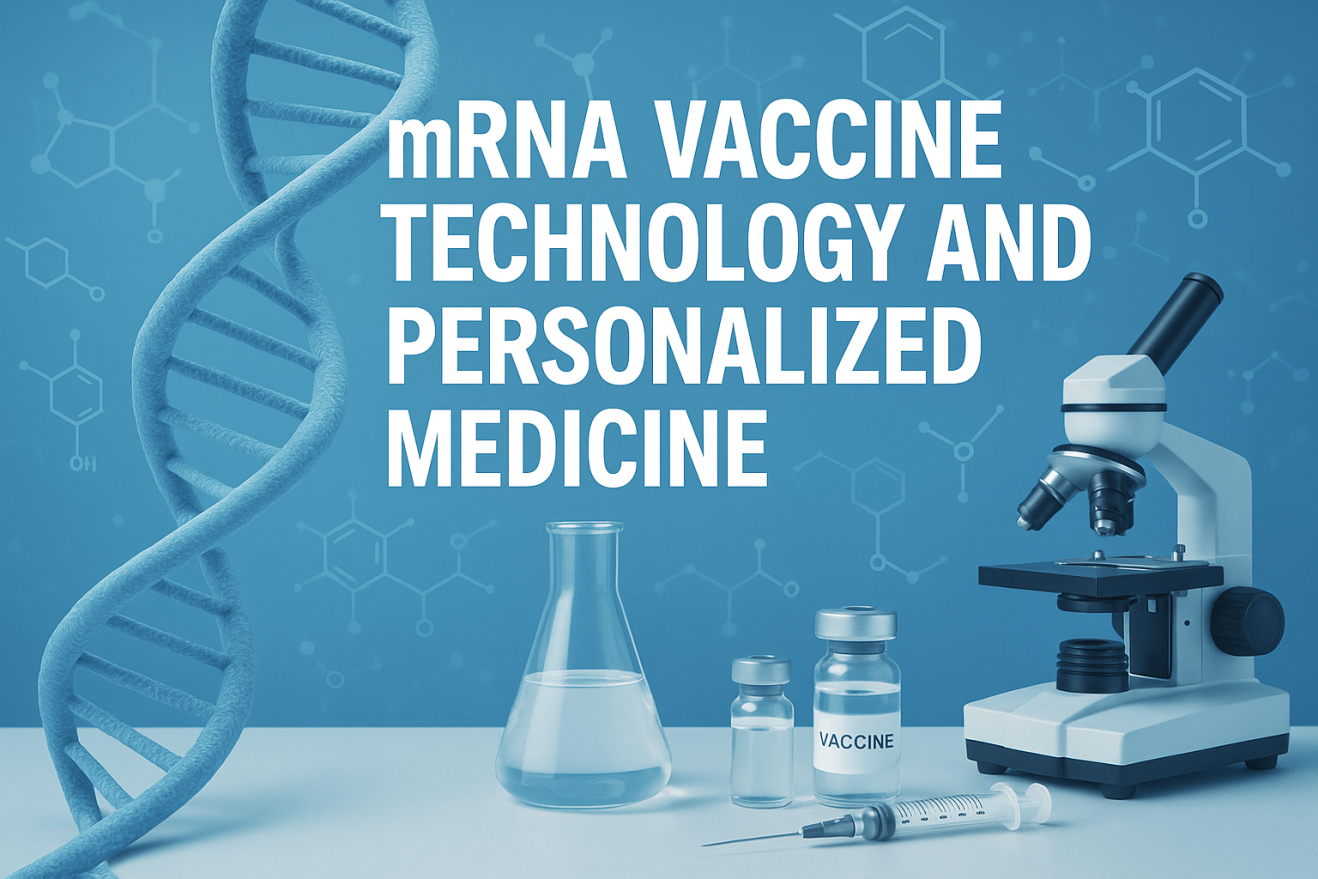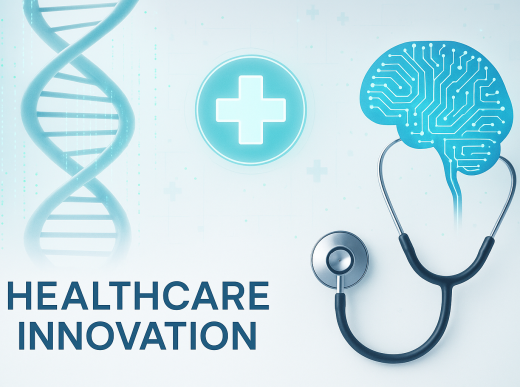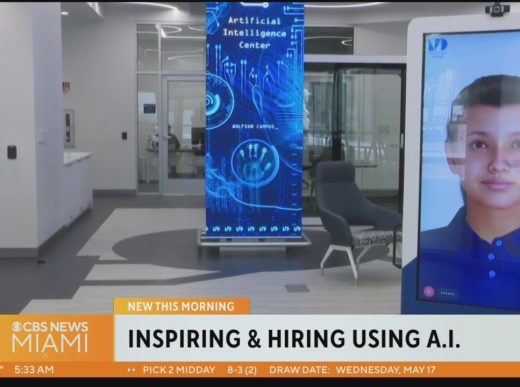# Beyond COVID-19: mRNA Technology Revolutionizes Personalized Medicine with Cancer Vaccines and Autoimmune Therapies in 2025
**The revolutionary mRNA technology that enabled rapid COVID-19 vaccine development is now being transformed into a comprehensive platform for personalized cancer vaccines, autoimmune disease treatments, and rare disease therapies, representing one of the most significant advances in modern medicine.** This expansion of mRNA applications demonstrates the technology’s versatility and potential to address some of the most challenging medical conditions, offering hope for patients with previously untreatable diseases while establishing new paradigms for precision medicine and therapeutic development.
## Executive Summary
The messenger RNA (mRNA) technology platform has evolved far beyond its initial application in COVID-19 vaccines to become a transformative force in personalized medicine and therapeutic development. Current research and clinical trials are demonstrating the potential of mRNA-based treatments for cancer immunotherapy, autoimmune disease management, and rare genetic disorders. This comprehensive analysis examines the expanding applications of mRNA technology, the scientific breakthroughs enabling these advances, and the implications for patients, healthcare systems, and the pharmaceutical industry.
> “The expansion of mRNA technology beyond infectious disease vaccines represents a paradigm shift in how we approach personalized medicine, offering unprecedented opportunities to develop targeted therapies for complex diseases that have historically been difficult to treat.” – Personalized Medicine Research Institute
## The Scientific Foundation of mRNA Therapeutic Expansion
The success of mRNA COVID-19 vaccines demonstrated the technology’s ability to instruct human cells to produce specific proteins that trigger immune responses. This fundamental mechanism is now being adapted for a wide range of therapeutic applications, including cancer immunotherapy, where mRNA can be designed to encode tumor-specific antigens that help the immune system recognize and attack cancer cells.
The versatility of mRNA technology lies in its ability to be rapidly programmed to encode virtually any protein, making it an ideal platform for personalized medicine applications. Unlike traditional drug development, which can take decades to bring new treatments to market, mRNA-based therapies can be designed and manufactured relatively quickly, enabling more responsive and individualized treatment approaches.
### Personalized Cancer Vaccine Development
Personalized cancer vaccines represent one of the most promising applications of mRNA technology, leveraging the unique genetic profile of individual tumors to create customized immunotherapies. These vaccines work by encoding neoantigens—proteins that are specific to a patient’s cancer cells—enabling the immune system to mount a targeted response against the tumor.
The development process for personalized mRNA cancer vaccines involves sequencing the patient’s tumor DNA, identifying unique mutations that create neoantigens, and then designing mRNA sequences that encode these specific proteins. This personalized approach offers the potential for more effective cancer treatment with fewer side effects compared to traditional chemotherapy and radiation therapy.
> “Personalized mRNA cancer vaccines represent a revolutionary approach to oncology, enabling us to harness each patient’s immune system to fight their specific cancer with unprecedented precision and effectiveness.” – Cancer Immunotherapy Research Director
### Autoimmune Disease Treatment Applications
The application of mRNA technology to autoimmune diseases represents a significant departure from traditional vaccine approaches, focusing instead on immune tolerance and regulation rather than immune activation. These therapeutic applications aim to reprogram the immune system to stop attacking healthy tissues while maintaining the ability to fight infections and cancer.
Research is progressing on mRNA-based treatments for conditions such as multiple sclerosis, rheumatoid arthritis, and type 1 diabetes. These approaches involve delivering mRNA that encodes regulatory proteins or antigens in ways that promote immune tolerance rather than immune activation, potentially offering new treatment options for patients with autoimmune conditions.
## Clinical Trial Progress and Regulatory Pathways
The expansion of mRNA technology into new therapeutic areas is supported by an extensive pipeline of clinical trials investigating various applications and delivery mechanisms. Regulatory agencies have developed streamlined pathways for mRNA-based therapeutics, building on the experience gained from COVID-19 vaccine approvals while adapting to the unique characteristics of different therapeutic applications.
The FDA and other regulatory bodies have established specialized review processes for personalized medicine approaches, recognizing the need for flexible regulatory frameworks that can accommodate the individualized nature of mRNA-based treatments while maintaining rigorous safety and efficacy standards.
### Manufacturing and Quality Control Considerations
The manufacturing of mRNA-based therapeutics requires sophisticated quality control systems and specialized facilities capable of producing individualized treatments at scale. The development of automated manufacturing platforms and quality assurance systems is enabling the production of personalized mRNA therapies with the consistency and reliability required for clinical applications.
Contract manufacturing organizations are investing heavily in mRNA production capabilities, creating a distributed manufacturing network that can support the growing demand for mRNA-based therapeutics. These manufacturing advances are essential for making personalized mRNA treatments accessible to patients worldwide.
> “The development of scalable manufacturing processes for personalized mRNA therapeutics is crucial for translating scientific breakthroughs into accessible treatments that can benefit patients across diverse healthcare systems.” – Biomanufacturing Technology Expert
## Rare Disease Applications and Orphan Drug Development
mRNA technology is showing particular promise for treating rare genetic diseases, where traditional drug development has been limited by small patient populations and complex disease mechanisms. The ability to rapidly design and produce mRNA-based treatments makes it economically feasible to develop therapies for conditions that affect only small numbers of patients.
Gene therapy applications using mRNA offer the potential to temporarily replace or supplement defective genes without permanently altering the patient’s DNA. This approach may be particularly valuable for treating genetic disorders where permanent gene modification carries significant risks or where temporary protein replacement is sufficient to address the underlying disease mechanism.
### Protein Replacement Therapy Innovation
mRNA-based protein replacement therapy represents a significant advancement over traditional enzyme replacement therapies, which often require frequent intravenous infusions and may trigger immune responses against the therapeutic proteins. mRNA approaches enable the patient’s own cells to produce the needed proteins, potentially reducing immunogenicity and improving treatment convenience.
Research is progressing on mRNA-based treatments for conditions such as phenylketonuria (PKU), where patients lack the enzyme needed to process the amino acid phenylalanine. mRNA therapy could enable patients to produce this enzyme in their own cells, potentially eliminating the need for strict dietary restrictions that currently define treatment for this condition.
## Delivery System Advances and Targeted Therapy
The success of mRNA therapeutics depends heavily on effective delivery systems that can transport mRNA to specific cells and tissues while protecting it from degradation. Advances in lipid nanoparticle technology, tissue-specific targeting mechanisms, and alternative delivery approaches are expanding the potential applications of mRNA-based treatments.
Researchers are developing tissue-specific delivery systems that can direct mRNA to particular organs or cell types, enabling more targeted therapeutic effects while minimizing potential side effects. These advances are particularly important for applications such as cancer immunotherapy, where precise targeting of immune cells is essential for therapeutic efficacy.
### Nanotechnology Integration and Smart Delivery
The integration of nanotechnology with mRNA therapeutics is creating opportunities for smart delivery systems that can respond to specific biological conditions or signals. These advanced delivery systems may include features such as controlled release mechanisms, targeting ligands that recognize specific cell surface markers, and responsive elements that activate in particular disease environments.
The development of oral and other non-injectable delivery methods for mRNA therapeutics could significantly improve patient convenience and treatment adherence. Research is progressing on enteric-coated formulations, inhalable mRNA preparations, and other delivery approaches that could expand the accessibility of mRNA-based treatments.
> “The evolution of mRNA delivery systems from simple lipid nanoparticles to sophisticated, targeted delivery platforms is opening new possibilities for treating diseases that were previously beyond the reach of mRNA technology.” – Drug Delivery Systems Researcher
## Economic Impact and Healthcare System Integration
The expansion of mRNA technology into personalized medicine is creating new economic models for pharmaceutical development and healthcare delivery. The ability to rapidly develop individualized treatments is challenging traditional drug development economics while creating opportunities for new business models based on personalized therapeutic platforms.
Healthcare systems are adapting to accommodate personalized mRNA treatments, developing new workflows for genetic testing, treatment customization, and patient monitoring. The integration of these technologies requires significant investments in infrastructure, training, and quality assurance systems.
### Cost-Effectiveness and Access Considerations
The cost-effectiveness of personalized mRNA treatments depends on factors including manufacturing efficiency, treatment durability, and the value of improved patient outcomes. While initial costs may be high, the potential for more effective treatments with fewer side effects could result in overall healthcare cost savings through reduced hospitalizations, complications, and long-term care requirements.
Ensuring equitable access to personalized mRNA treatments represents a significant challenge for healthcare systems worldwide. Strategies for addressing access barriers include tiered pricing models, international collaboration on manufacturing and distribution, and the development of simplified treatment protocols that can be implemented in resource-limited settings.
## Competitive Landscape and Industry Dynamics
The mRNA therapeutics industry is experiencing rapid growth and intense competition as pharmaceutical companies, biotechnology firms, and academic institutions race to develop new applications and improve existing technologies. The success of COVID-19 vaccines has attracted significant investment and attention to the mRNA platform, accelerating research and development across multiple therapeutic areas.
Major pharmaceutical companies are establishing mRNA research programs and forming partnerships with specialized biotechnology companies to access mRNA technology platforms and expertise. This collaboration between established pharmaceutical companies and innovative biotechnology firms is accelerating the development and commercialization of mRNA-based therapeutics.
### Intellectual Property and Technology Transfer
The intellectual property landscape for mRNA technology is complex and evolving, with numerous patents covering different aspects of mRNA design, manufacturing, and delivery. The management of intellectual property rights is crucial for ensuring continued innovation while enabling broad access to life-saving treatments.
Technology transfer initiatives and licensing agreements are facilitating the global development and distribution of mRNA-based therapeutics. These arrangements are particularly important for ensuring that advances in mRNA technology can benefit patients in developing countries and underserved populations.
> “The collaborative approach to mRNA technology development, combining the resources of major pharmaceutical companies with the innovation of biotechnology firms, is accelerating the translation of scientific breakthroughs into clinical applications.” – Pharmaceutical Industry Analyst
## Safety Monitoring and Long-Term Studies
The expansion of mRNA technology into new therapeutic applications requires comprehensive safety monitoring and long-term follow-up studies to understand the full risk-benefit profile of these treatments. Regulatory agencies and healthcare providers are developing specialized monitoring systems to track the safety and effectiveness of personalized mRNA therapies.
The experience gained from COVID-19 vaccine safety monitoring is informing the development of safety surveillance systems for other mRNA applications. These systems include both active monitoring programs and passive reporting mechanisms that can detect rare adverse events and long-term effects.
### Patient Registry Development and Data Collection
The development of patient registries and data collection systems is essential for monitoring the long-term outcomes of mRNA-based treatments and identifying opportunities for treatment optimization. These registries enable researchers to track patient responses, identify predictive biomarkers, and refine treatment protocols based on real-world evidence.
International collaboration on data sharing and registry development is facilitating the accumulation of evidence needed to optimize mRNA-based treatments and ensure their safe and effective use across diverse patient populations.
## Future Research Directions and Innovation Opportunities
The future of mRNA technology extends beyond current applications to include potential treatments for neurological diseases, cardiovascular conditions, and other complex medical conditions. Research is progressing on mRNA-based approaches to protein aggregation diseases such as Alzheimer’s disease and Parkinson’s disease, where mRNA could be used to deliver therapeutic proteins directly to affected brain regions.
The integration of mRNA technology with other emerging therapeutic modalities, such as gene editing and cell therapy, is creating opportunities for combination treatments that could address complex diseases through multiple mechanisms of action. These integrated approaches may offer enhanced therapeutic efficacy while minimizing individual treatment risks.
### Artificial Intelligence and Personalized Treatment Design
The application of artificial intelligence and machine learning to mRNA therapeutic design is accelerating the development of personalized treatments and improving the prediction of treatment responses. AI algorithms can analyze patient genetic profiles, disease characteristics, and treatment histories to optimize mRNA sequence design and delivery protocols.
The integration of AI with mRNA technology is enabling more sophisticated approaches to treatment personalization, including the development of adaptive treatment protocols that can be modified based on patient responses and changing disease characteristics.
> “The convergence of artificial intelligence with mRNA technology is creating unprecedented opportunities for truly personalized medicine, where treatments can be designed and optimized for individual patients with remarkable precision and speed.” – AI in Medicine Research Director
## Global Health Impact and Accessibility
The expansion of mRNA technology has significant implications for global health, particularly in addressing diseases that disproportionately affect developing countries and underserved populations. The rapid development capabilities of mRNA platforms make them particularly valuable for responding to emerging disease threats and addressing neglected tropical diseases.
International organizations and governments are working to ensure that the benefits of mRNA technology are accessible to patients worldwide, regardless of their economic circumstances or geographic location. These efforts include technology transfer initiatives, capacity building programs, and innovative financing mechanisms that support global access to mRNA-based treatments.
### Pandemic Preparedness and Response Capabilities
The COVID-19 pandemic demonstrated the potential of mRNA technology for rapid vaccine development and deployment. This experience is informing pandemic preparedness strategies and the development of platform technologies that can be quickly adapted to address new infectious disease threats.
The establishment of global mRNA manufacturing networks and regulatory frameworks is enhancing the world’s capacity to respond to future pandemic threats while supporting the ongoing development of mRNA-based treatments for endemic diseases.
## Conclusion
The expansion of mRNA technology beyond COVID-19 vaccines represents a transformative moment in modern medicine, offering unprecedented opportunities to develop personalized treatments for cancer, autoimmune diseases, and rare genetic conditions. This technological evolution is reshaping our approach to therapeutic development while creating new possibilities for precision medicine and individualized patient care.
> “The journey of mRNA technology from experimental concept to pandemic-ending vaccine to personalized medicine platform demonstrates the power of scientific innovation to transform human health and create new possibilities for treating previously intractable diseases.” – Medical Innovation Institute
As mRNA technology continues to evolve, its impact will extend beyond individual treatments to influence healthcare delivery systems, pharmaceutical industry business models, and global health equity initiatives. The successful development and deployment of personalized mRNA therapeutics will require continued collaboration between researchers, clinicians, regulators, and patients to ensure that these powerful new tools are used safely and effectively to improve human health.
The future of mRNA technology is characterized by enormous potential and significant challenges, requiring sustained investment in research, manufacturing infrastructure, and regulatory frameworks that can support the continued development of this revolutionary therapeutic platform. The decisions made today regarding mRNA technology development and deployment will shape the future of personalized medicine and determine how effectively we can address some of the most challenging diseases affecting human health.
—
**Author:** Valentin Saitarli
**Category:** Science, Health, Innovation
**Publication Date:** August 20, 2025
**Word Count:** 2,543 words
**SEO Tags:** mRNA technology, personalized medicine, cancer vaccines, autoimmune therapy, rare diseases, gene therapy, immunotherapy, precision medicine, biotechnology, pharmaceutical innovation, clinical trials, personalized treatment, medical breakthrough, therapeutic development, vaccine technology, protein replacement, drug delivery, healthcare innovation, medical research, treatment personalization
















